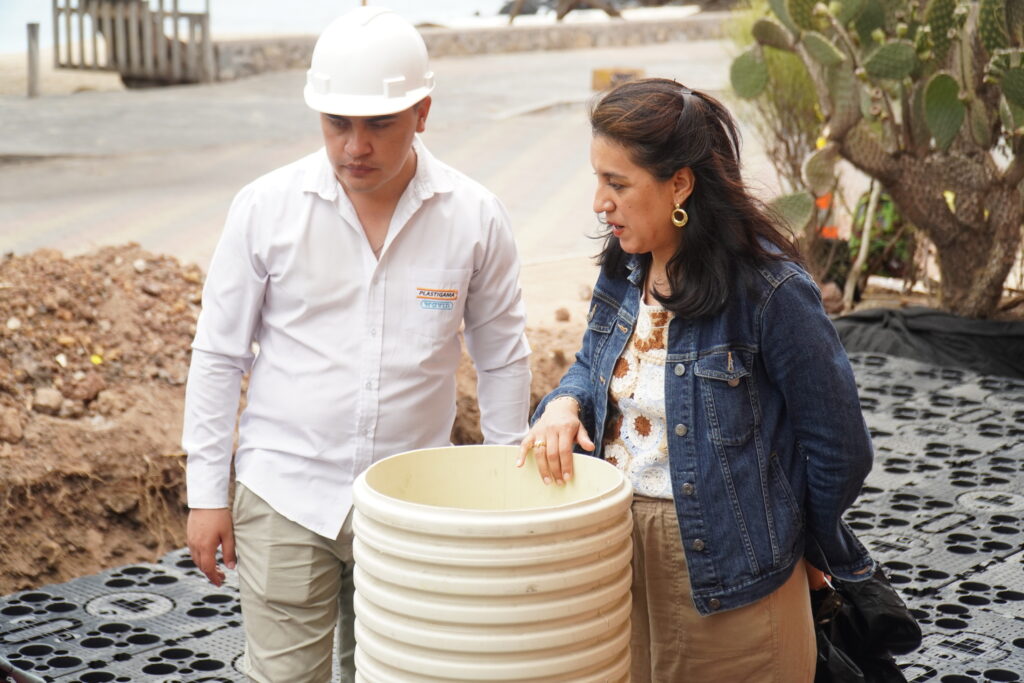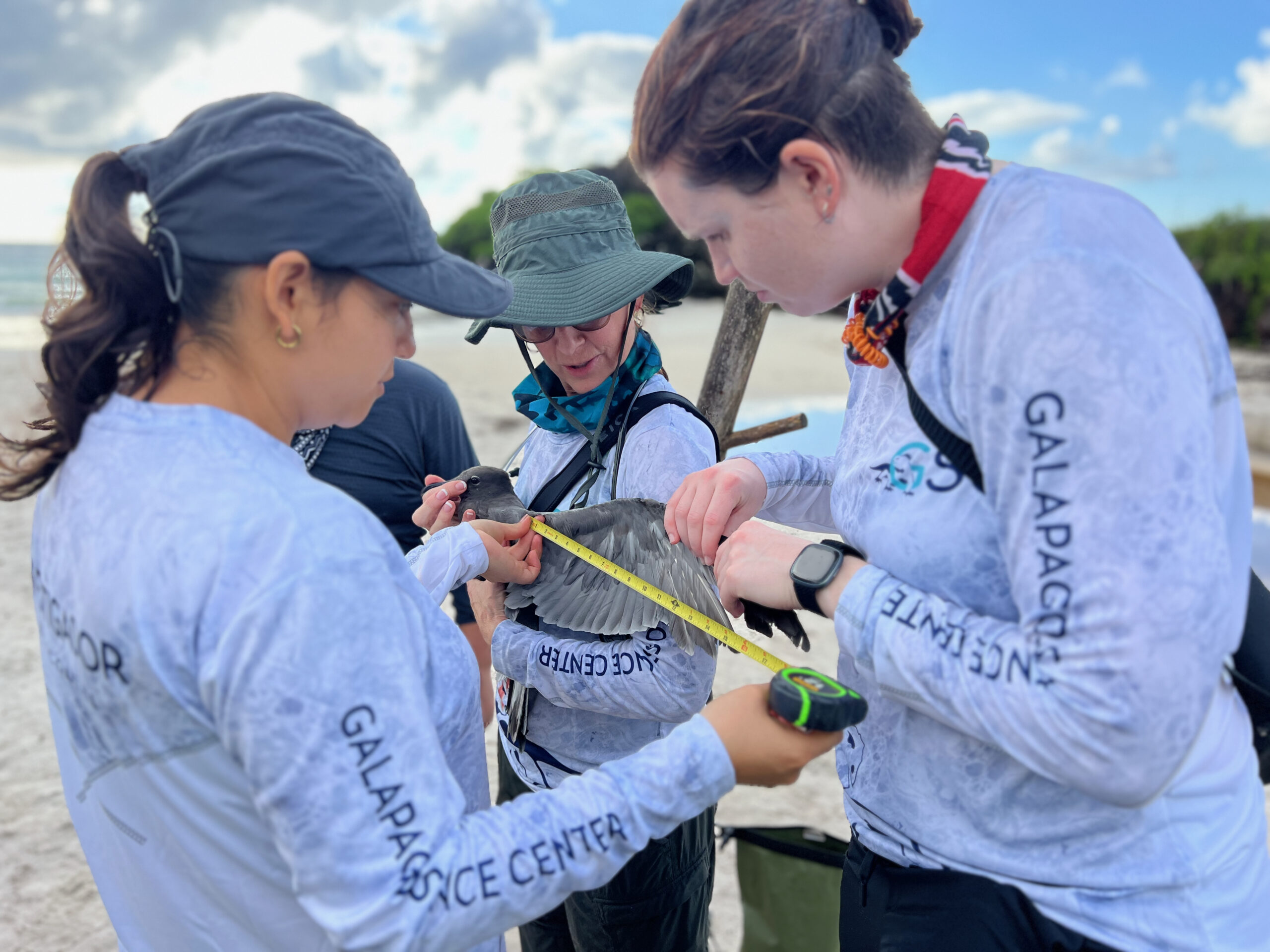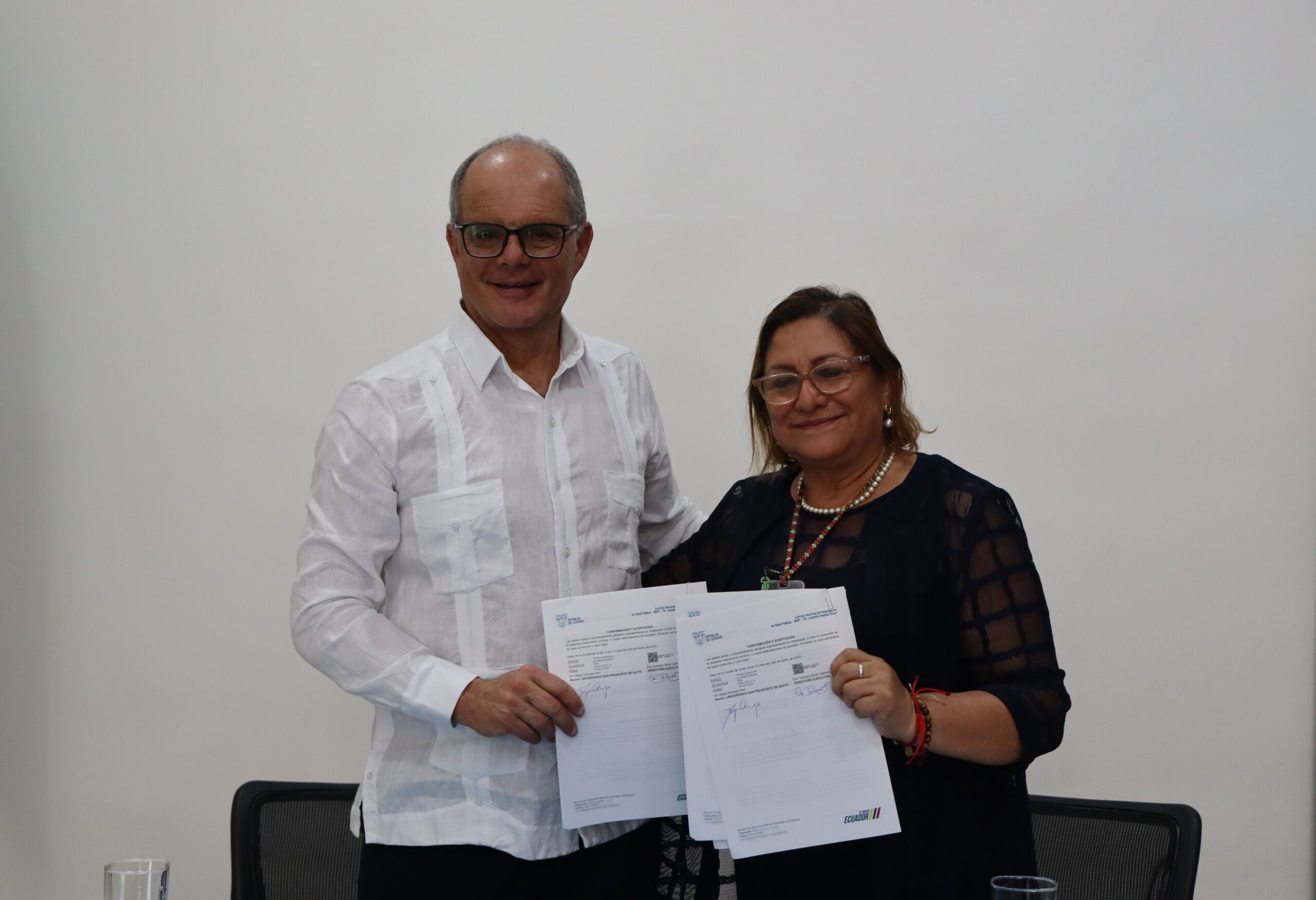In a joint effort to promote sustainability and improve water resource management, Plastigama Wavin, the Ecuador Water Security Coalition, Universidad San Francisco de Quito (USFQ) with its Galápagos campus, and the Galapagos Science Center (GSC) implemented the “AquaCell 400 Technology Installation Project” in September. This technology is used for rainwater harvesting, treating the collected water to make it potable and safe for consumption.
This significant initiative, focused on enhancing water efficiency in the islands, is expected to have a positive and meaningful environmental impact in the Galápagos. Through this system, designed (or patented) by Plastigama Wavin, approximately 14.2 cubic meters of water can be collected by the rainwater collection system.
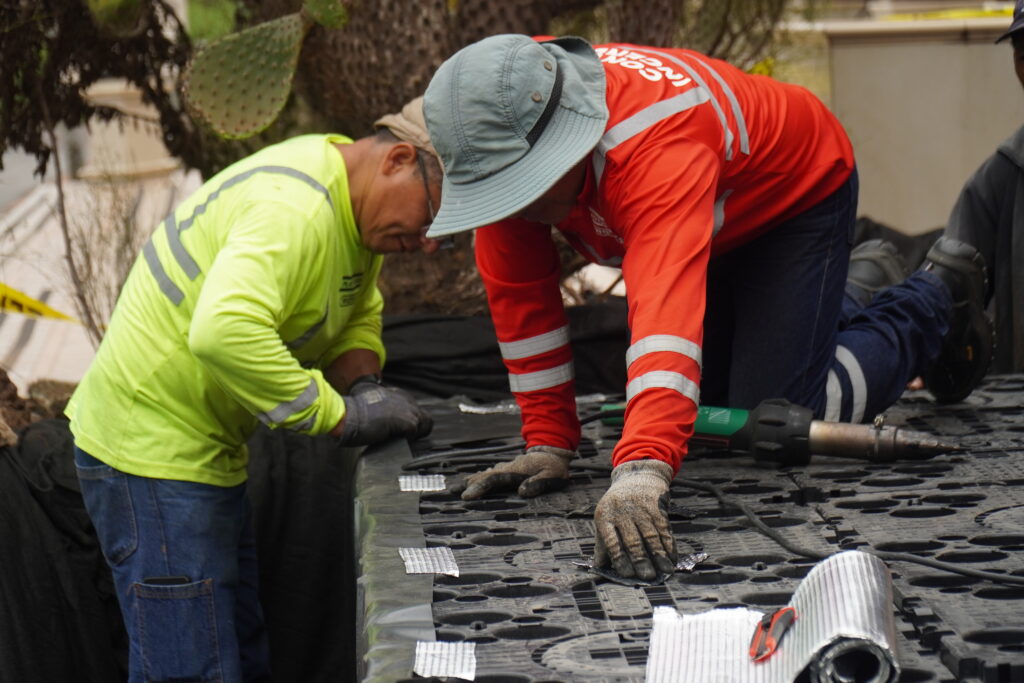
To close the circular water management model, the Integrated Septic Biotank, another innovation by Plastigama Wavin in Ecuador, will also be implemented. This system will treat domestic wastewater from the activities of the GSC. In this way, the center’s operations will not only continue contributing positively through research that promotes the conservation of Galapagos’ fragile ecosystems but will also align with a sustainable and water-friendly operational model.
Carlos Valenzuela, Technical and Commercial Supervisor of the Urban Climate Resilience unit at Plastigama Wavin, emphasized: “The implementation of technologies like AquaCell 400 and the Integrated Septic Biotank represents a circular water management model that not only enables the use of this resource for various purposes but also provides resilience against potential natural events related to climate change and changes in the water cycle, such as floods and droughts. This project contributes to the sustainability of our islands and serves as an example of the innovation new technologies bring to sustainable construction projects, positively impacting water efficiency and reducing environmental risks.”
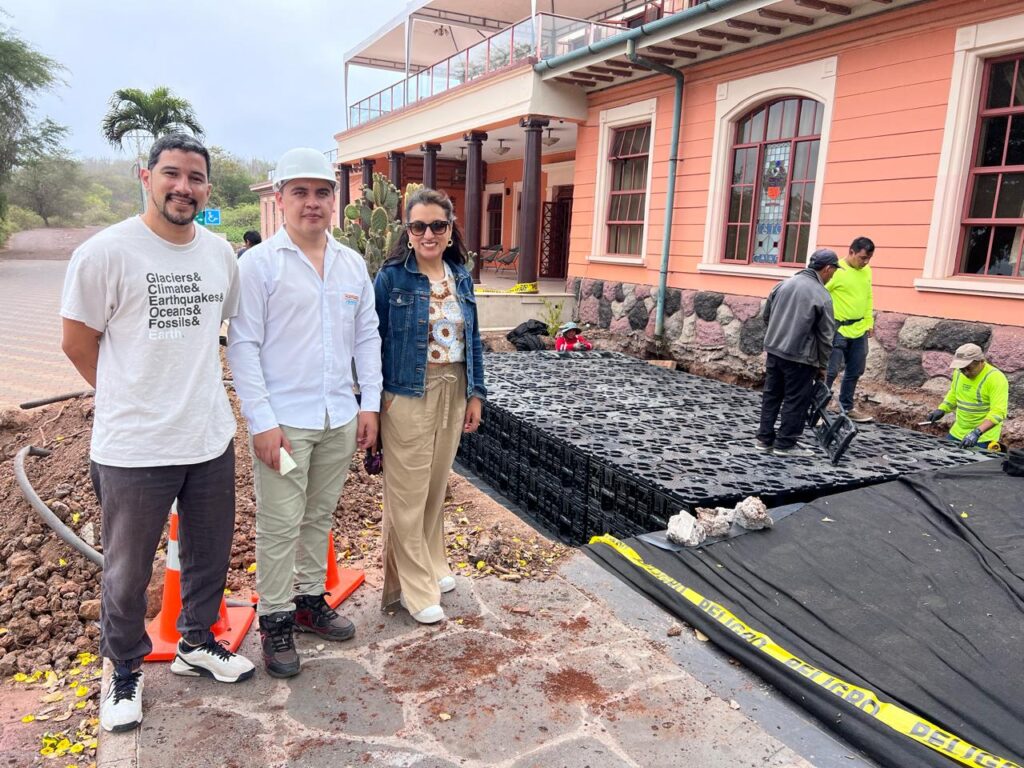
Meanwhile, Valeria Ochoa-Herrera, professor and researcher at Universidad San Francisco de Quito and the Galapagos Science Center, stated: “At Universidad San Francisco de Quito and the Galapagos Science Center, we are committed to implementing sustainable solutions that help us preserve and protect water resources in the Galapagos Islands, where freshwater availability is limited. Today, more than ever, we are called to live sustainably, adapting and mitigating the impacts of climate change on such fragile and unique ecosystems as those in Galapagos.”
Thus, Plastigama Wavin reinforces its commitment to technological innovation in collaboration with the USFQ Galápagos campus and the GSC, through actions that will help address environmental challenges in pursuit of a more sustainable future for this valuable region, both for Ecuador and the world.

